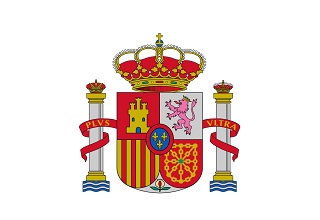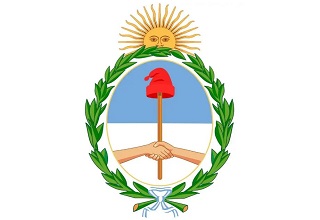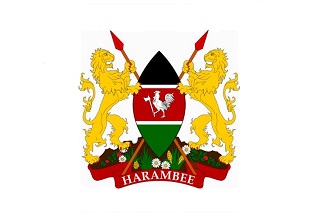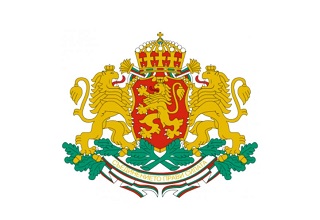Regarding the Inspection and Quarantine Requirements for Fresh Avocado Fruits from Zimbabwe to China
I. Inspection and quarantine basis
(I) "Biosafety Law of the People's Republic of China";
(II) "Law of the People's Republic of China on Entry and Exit Animal and Plant Quarantine" and its implementing regulations;
(III) "Food Safety Law of the People's Republic of China" and its implementing regulations;
(IV) "Regulations on the Supervision and Administration of Inspection and Quarantine of Imported Fruits";
(V) "Protocol on Plant Quarantine Requirements for the Export of Fresh Avocados from Zimbabwe to China between the General Administration of Customs of the People's Republic of China and the Ministry of Lands, Agriculture, Fisheries, Irrigation and Rural Development of Zimbabwe".
II. Names of commodities allowed for import
Fresh avocado (hereinafter referred to as avocado), scientific name Persea americana, English name Avocado.
III. Permitted origin
Avocado producing areas in Zimbabwe.
IV. Approved orchards and packing houses
Orchards, packing houses and fumigation facilities for avocados exported to China must be audited by the Ministry of Lands, Agriculture, Fisheries, Irrigation and Rural Development of Zimbabwe and approved for registration by the Chinese Customs. Registration information includes name, address and registration number to facilitate accurate traceability when exported goods do not comply with relevant regulations. Before the export season each year, the Ministry of Lands, Agriculture, Fisheries, Irrigation and Rural Development of Zimbabwe shall provide the registration list to the Chinese Customs, which will be published on the website of the Chinese Customs after approval.
V. Quarantine pests of concern
1. Ceratitis capitata
2. Ceratitis cosyra
3. Ceratitis rosa
4. Thaumatotibia (= Cryptophlebia) leucotreta
5. Spodoptera littoralis
6. Aulacaspis tubercularis
7. Ceroplastes rusci
8. Ceroplastes destructor
9. Coccus longulus
10. Pseudococcus longispinus
11. Selenaspidus articulatus
12. Elsinoe perseae
13. Pseudomonas syringae pv. syringae
14. Purpureocillium lilacinum
VI. Pre-export management
(I) Orchard management.
1. Avocado orchards exported to China should establish a sound quality management system and traceability system under the supervision of the Ministry of Land, Agriculture, Fisheries, Irrigation and Rural Development of Zimbabwe, implement good agricultural practices (GAP), including maintaining sanitary conditions in the orchard, timely cleaning of fallen fruits, etc., and implement integrated pest management (IPM), such as pest surveys, monitoring, chemical or biological control, and agricultural operations, to avoid or minimize the occurrence of quarantine pests of concern to Chinese customs on avocados.
2. The Ministry of Lands, Agriculture, Fisheries, Irrigation and Rural Development of Zimbabwe shall, in accordance with the requirements of International Standard for Phytosanitary Measures No. 6 (ISPM 6), have technical personnel under the guidance of the Ministry of Lands, Agriculture, Fisheries, Irrigation and Rural Development of Zimbabwe or its authorized agencies conduct monitoring surveys on quarantine pests of concern to the Chinese Customs. If quarantine pests of concern to the Chinese Customs are found, appropriate control measures shall be taken immediately. Pest monitoring plans and integrated management measures shall be approved by the Ministry of Lands, Agriculture, Fisheries, Irrigation and Rural Development of Zimbabwe and provided to the Chinese Customs upon request.
3. For Ceratitis capitata, Ceratitis cosyra, Ceratitis rosa and Thaumatotibia (= Cryptophlebia) leucotreta, integrated management measures shall be taken, including the use of chemical control, biological control and mating disruption measures, or other control methods, to control the occurrence of pests or maintain a low level of pest prevalence.
4. For Elsinoe perseae, an orchard monitoring system should be established, orchard management should be strengthened, and field monitoring surveys should be conducted at least once a month during the avocado growing season. Once round or irregular shapes, brown, corky spots are found on the surface of the fruit, or the veins are twisted, or the leaves are deformed and shrunken, or the fruit drops for unknown reasons or deformed fruits are found, samples should be taken in time and sent to the laboratory for molecular biological identification. Once it is confirmed that the plant is susceptible to Elsinoe perseae, the infected fallen fruits or branches and leaves must be concentrated for inactivation. At the same time, strengthen the investigation and monitoring of surrounding plants.
5. For pests of concern to the Chinese Customs, such as Spodoptera littoralis, Aulacaspis tubercularis, Ceroplastes destructor, Ceroplastes rusci, Coccus longulus, Pseudococcus longispinus, and Selenaspidus articulatus, monitoring surveys should be conducted during the growing season, at least once every 2 weeks from flowering to harvest. The survey focuses on observing whether the fruit, fruit stalk, branches, stems and leaves have target pests. If pests or their corresponding symptoms are found during monitoring, prevention and control measures, including chemical or biological control, should be taken in a timely manner to control the occurrence of pests or maintain a low level of pest prevalence.
6. Orchards exporting to China should keep pest monitoring and control records for at least two years and provide them to the Chinese Customs upon request. Pest monitoring and control records should at least include the monitoring time, the name of the pest found, and the control measures taken; chemical control records should include detailed information such as the name, active ingredient, concentration, and application date of all chemical agents used during the growing season.
(II) Packaging plant management.
1. Avocado processing, packaging, storage and shipping must be carried out under the quarantine supervision of the Zimbabwe Ministry of Land, Agriculture, Fisheries, Irrigation and Rural Development or its authorized agency.
2. During the post-harvest processing and packaging of avocados, they should be washed with high-pressure sprays, brushed with brushes, manually sorted, and graded to ensure that they are free of any live insects, bad fruits, inferior fruits (overripe fruits, detached fruits, scarred fruits, black-spotted fruits, deformed fruits, etc.), branches, leaves, soil, etc. The fruit stalk should not be longer than 3 mm.
(III) Packaging requirements.
1. The packaging materials should be clean and unused, and meet the relevant plant quarantine requirements of China. If wooden packaging is used, it must comply with the International Standard for Phytosanitary Measures No. 15 (ISPM 15).
2. If packaged avocados need to be stored, they should be immediately put into storage and stored separately to avoid reinfection by pests. Each packaging box must be marked with information such as the name of the fruit, country, place of origin (district or county), orchard name or its registration number, and packaging plant name or its registration number. Each packaging box and pallet must be marked with "输往中华人民共和国" or "Exported to the People's Republic of China" in Chinese or English.
3. Before packing the Chinese avocados for transportation, the container should be checked to ensure that it has good sanitary conditions. Necessary anti-insect measures should be taken during packing.
(IV) Inspection and quarantine before export.
1. The Ministry of Lands, Agriculture, Fisheries, Irrigation and Rural Development of Zimbabwe or its authorized personnel shall sample and inspect each batch of avocados exported to China at a rate of 2% of each batch of goods, with a minimum sampling volume of 1,200 fruits, and at least 60 fruits in the 2% sample or suspicious fruits found during the inspection process shall be dissected for inspection. If there are no plant quarantine problems within two years, the sampling rate may be reduced to 1%, but the sampling volume shall not be less than 1,200 fruits.
2. If live quarantine pests of concern to the Chinese Customs are found, the entire batch of goods shall not be exported to China. The Ministry of Lands, Agriculture, Fisheries, Irrigation and Rural Development of Zimbabwe shall find out the reasons and take improvement measures. At the same time, the inspection records shall be kept and provided to the Chinese Customs upon request.
(V) Quarantine treatment requirements.
Avocados exported to China should be fumigated with methyl bromide for Ceratitis and Thaumatotibia (= Cryptophlebia) leucotreta under the supervision of authorized personnel from the Ministry of Lands, Agriculture, Fisheries, Irrigation and Rural Development of Zimbabwe. The fumigation treatment indicators are as follows: the temperature is above 21.1 °C, the fumigant dosage is 32 g/m^3, and the duration of normal pressure fumigation is not less than 2 hours; and the minimum concentration during the fumigation period must be not less than 26 g/m^3 after 0.5 hours and not less than 16 g/m^3 after 2 hours.
(VI) Plant quarantine certificate requirements.
1. For avocados that have passed the quarantine, the Ministry of Lands, Agriculture, Fisheries, Irrigation and Rural Development of Zimbabwe shall issue a phytosanitary certificate, indicating the name of the orchard, packaging plant, fumigation treatment enterprise or its registration number and the container number, and indicate in the additional statement: "This consignment complies with the requirements specified in the Protocol of Phytosanitary Requirements for Export of Fresh Avocado Fruits from Zimbabwe to China, and is free from quarantine pests of concern to China."
2. In the quarantine treatment column of the phytosanitary certificate, the dosage, duration and treatment temperature of methyl bromide used for fumigation treatment shall also be indicated.
3. The Ministry of Lands, Agriculture, Fisheries, Irrigation and Rural Development of Zimbabwe shall provide a sample of the phytosanitary certificate to the Chinese Customs before the start of trade for filing and verification by the Chinese Customs.
VII. Entry Inspection and Quarantine and Disqualified Treatment
When avocados exported to China arrive at the Chinese entry port, the Chinese Customs shall implement inspection and quarantine in accordance with the following requirements.
(I) Verification of relevant certificates and labels.
1. When avocados arrive at the Chinese entry port, the Chinese Customs will check the relevant documents and labels and implement inspection and quarantine.
2. Check whether the plant quarantine certificate complies with the provisions of Article 6, paragraph (6) of this announcement.
3. Check whether the labels on the packaging boxes or pallets comply with the provisions of Article 6, paragraph (3) of this announcement.
(II) Entry inspection and quarantine.
1. Avocados exported to China should enter the country from ports where the Chinese Customs allows the import of fruits.
2. According to relevant laws, administrative regulations, rules and other regulations, imported avocados will be subject to inspection and quarantine. If they pass the inspection and quarantine, they will be allowed to enter the country.
(III) Disqualified treatment.
1. If it is found that the goods come from unregistered orchards, packaging plants or fumigation facilities, the batch of goods will not be allowed to enter the country.
2. If quarantine pests of concern to the Chinese Customs or new quarantine pests in Zimbabwe are found, the batch of goods will be returned, destroyed or treated for pests.
3. If it is found that the goods do not meet the national food safety standards of China, the batch of goods will be returned or destroyed.
4. If the above non-compliance is found, the Chinese Customs will notify the Ministry of Lands, Agriculture, Fisheries, Irrigation and Rural Development of Zimbabwe and suspend the export of avocados from the relevant orchards or packaging plants to China in this export season. The Ministry of Lands, Agriculture, Fisheries, Irrigation and Rural Development of Zimbabwe should conduct an investigation, find out the reasons and implement corresponding improvement measures. The Chinese Customs will decide whether to cancel the suspension measures based on the rectification results of the Ministry of Lands, Agriculture, Fisheries, Irrigation and Rural Development of Zimbabwe.
GACC
Sep. 18, 2024




